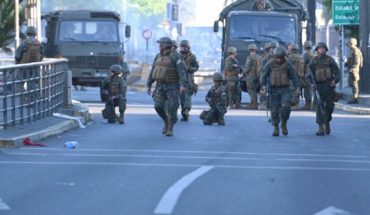Election Day has arrived. Many turn on the television as soon as they wake up and begin to participate in a day that begins the same as all the others of their kind, to end with a surprise. Even when there is no doubt who will win, the result always has some revelation. It is as in agonies: it is known that death will come from one minute to the next, but when it does, it abysses. The same goes for childbirth.
I prefer not to turn on the TV until the afternoon, when the counts are approaching. The script that precedes them is known: the candidates having breakfast, some channel accompanies them in the car on the way to their polling station, the cameras looking for politicians and personalities who come to vote, suddenly some scandal breaks out -a minor fight turned into news, the tantrum of a drunkard, someone who arrived without his identity card and does not resign himself to obey-, street people and experts of all kinds trying to fill the void caused by anxiety. Although sometimes the restlessness makes the silence unbearable, and the murmur of the screen accompanies. What happens in Chile is strange: there is a very low level of participation, but that half that does must constitute one of the most politicized communities in the world. For those of us who are part of it, as Alejandro Zambra wrote, “it is impossible not to talk about politics: it is too similar to not talking.”
Conventionals understand that it does not matter who wins. Gabriel Boric has been committed to the constituent process since November 15 when it was agreed and, José Antonio Kast, against it since that very moment. There are those who fear that a boric triumph will awaken again in the Convention those overwhelming passions that the first round contained, that moderation and the search for broad agreements will recede in the face of winning enthusiasm and that, arrogant, many will forget the fears, fatigue and demand for order and stability that somehow reflected the results of that previous vote. It is difficult to anticipate human behaviors (they tend to surprise), but if anyone did, they would be thinking more about themselves than about the success of their government and the virtuous start of the political stage that will open with it and with the new constitution.
But there’s more. This Sunday ends a new territorial week. The truth, this time the public accounts were not as active as last month. Some were dedicated to campaigning for their candidates – some to Kast and others to Boric – but most of them, seeing that time is pressing, we have entered a dizzying job of making constitutional norms. Meetings with advisors, experts, collectives and members of the various commissions have taken place late into the night, including this weekend. In most cases these are drafts that their authors present to discuss in groups, seeking support and corrections. It is no longer a question of ramblings or declarations of principles, but of a much more applied work and full of technical edges. Each word matters, but not as in poetry, where I hope it detonates an infinity of meanings capable of taking readers in very different directions, but as in the Commandments, where the message aspires to be unequivocal, so that the legislator in charge of concretizing it can choose different paths over time to achieve it. As in poetry, however, it is better less than more. We are not the ones called to close the story, but to open a new chapter of it.
Kast would rather go back. Boric looks forward to taking on the task of facing the future with all its new challenges. Like the Constitutional Convention, if it wins, it will require maximum complicity. What is coming is not easy. No minority is enough. No help is left over. As democracy expands, it becomes more difficult to govern it. And that’s what we’re called to. Better the surprise of a birth.
Hopefully we are facing a birth and not a slamming of the door
December 19, 2021 |





